This web page describes the use of Renault FT-17 tanks by the Spanish Army during the 1909-1927 Rif War in northern Morocco. It includes some highly detailed photos of the tanks.
Renault FT-17 Tanks in the Rif War
by Jesús Dapena
(email: dapena@iu.edu)
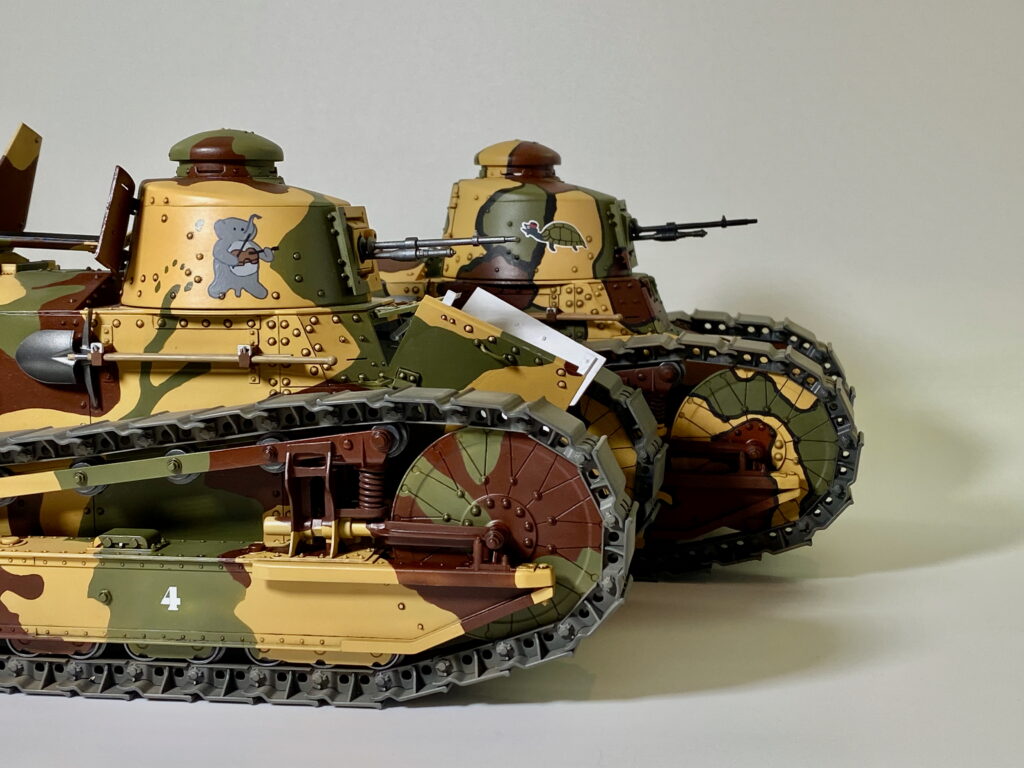
Cipriano Briz in the Rif War
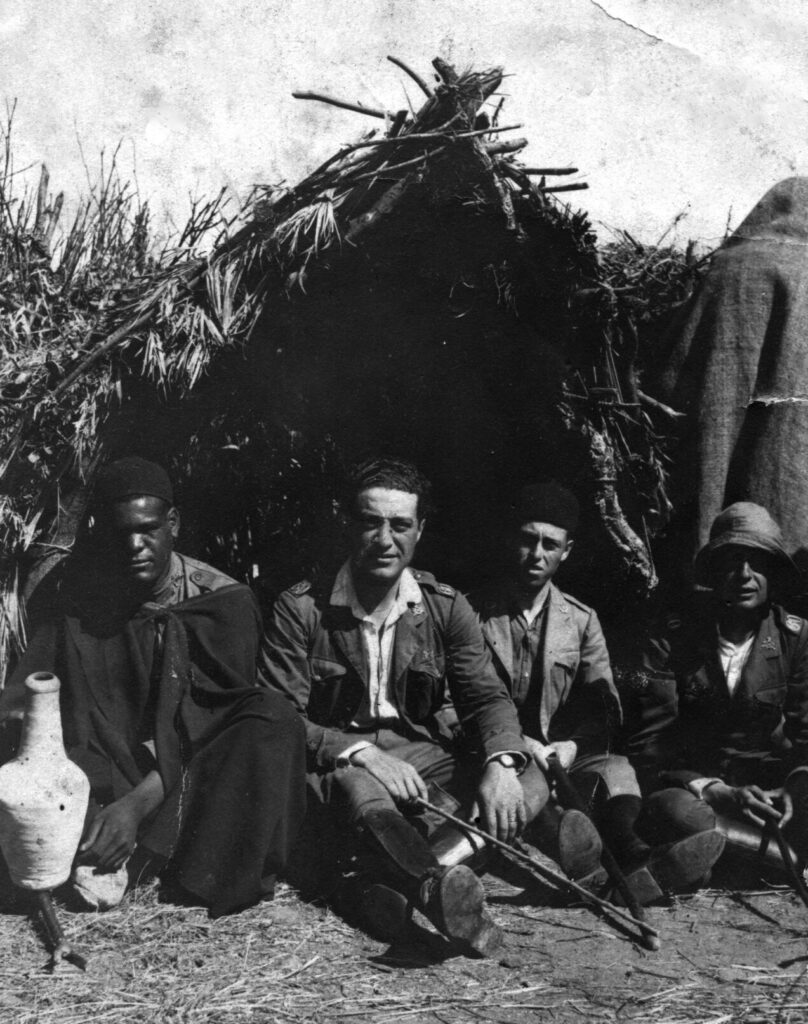
Cipri was born on January 25, 1894. The photo shows him as a lieutenant at Zoco El Telata (Kabila of Yebel Hebib) on June 2, 1921. This was in the western war zone. Cipri was shot in the left thigh in Ayalia (Kabila of Beni Arós) on December 19, 1921. He was with a machine gun crew, and the ammunition belt jammed. Cipri stood up, pressed with one foot on the machine gun, and pulled on the belt with his hands, trying to undo the jam. That is when he was shot.
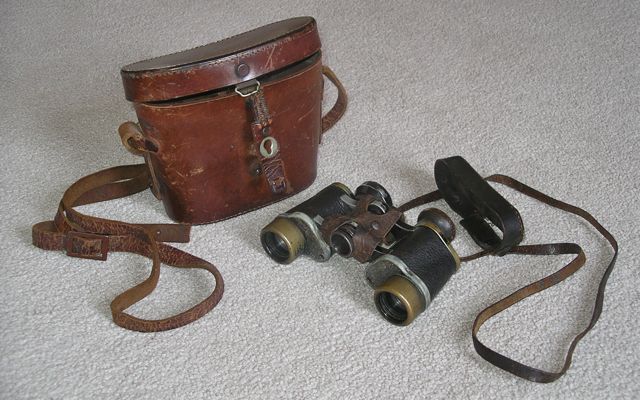
Cipri’s Zeiss Turact 8×24 binoculars, manufactured in Germany in 1918.
The standard Renault FT-17 tank
In 1924, Cipri was stationed in the eastern war zone, in an armored unit equipped with Renault FT-17 tanks. In French service, the Renault FT-17 tank came in two standard versions. One was armed with a 37 mm cannon; the other with an 8 mm Hotchkiss machine gun. Spain purchased 10 of the machine gun-armed tanks from France in 1922. The machine gun was modified to use the Spanish Army’s then-standard 7 mm cartridge. Cipri sent this series of photos to Spain, presumably to his mother. The originals were printed on postcard stock.
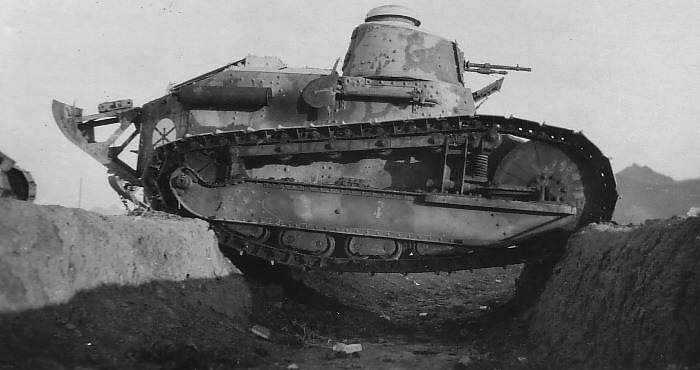
(For a more detailed image, click here.)
FT-17 tank. The picture above is titled “My command tank”. On the back, it says: “Notice the elephant painted to the left of the machine gun: It’s the mascot. This is the most difficult obstacle that a tank can face. This tank was almost burnt up by the Moors. That’s why it has an X (which stands for ‘wounded’) in the white circle in the rear. It’s number 4, and number 1 in the Sección.”
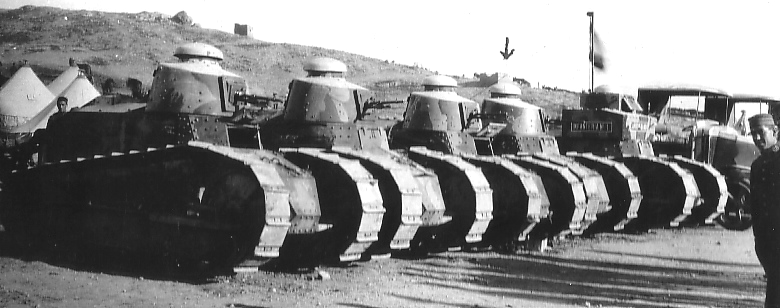
(For a more detailed image, click here.)
FT-17 tanks, including an FT-17 TSH for wireless communications. The picture above is titled “Tanks for protection of the convoy to Tizzi-Asa”. On the back, it says: “My little tank is the one marked by an arrow. Its cannon (sic) was hit by five bullets, and particles from two of them penetrated like a fine powder spray. This is funny after all! This photo was taken at Tafersit.” Notice the turtle mascot painted on the turret of Cipri’s tank.
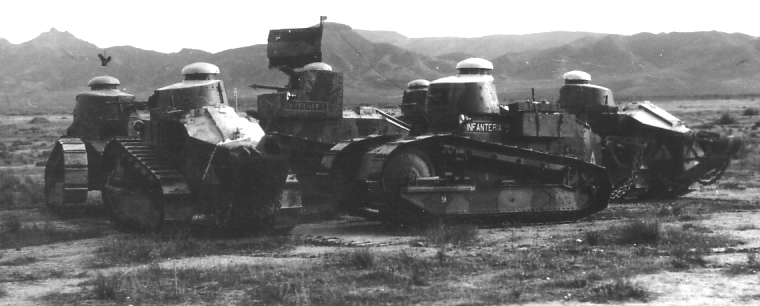
FT-17 and FT-17 TSH tanks. I assume that the arrow in the picture above again indicates Cipri’s tank.
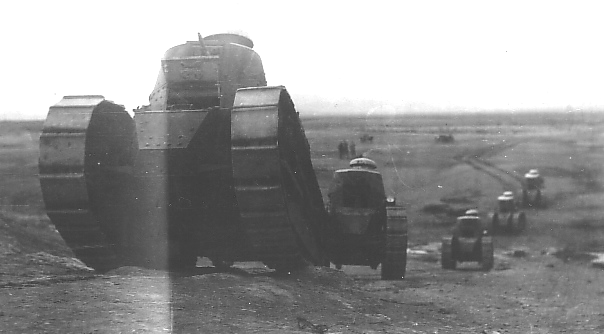
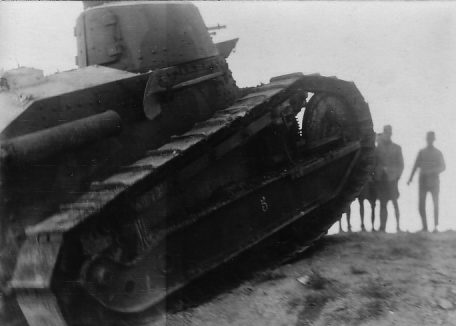
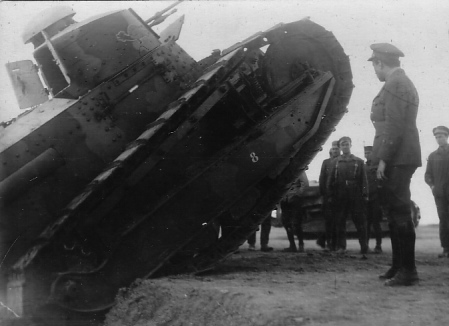
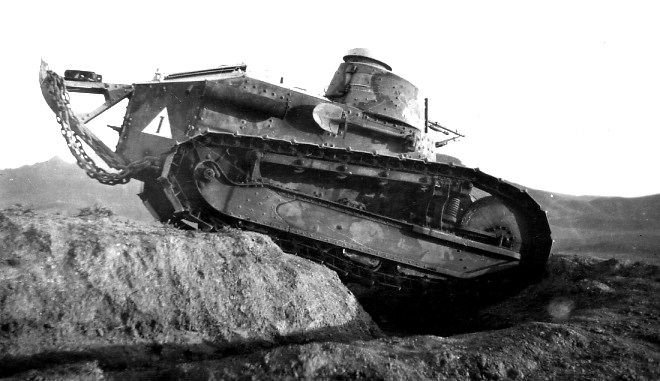
(For a more detailed image, click here.)
FT-17 tanks. Notice in the last two photos the turtle mascot painted on the turret of the tank identified by a number “8” painted in white on the horizontal beam of the traction gear. This is obviously Cipri’s tank again.
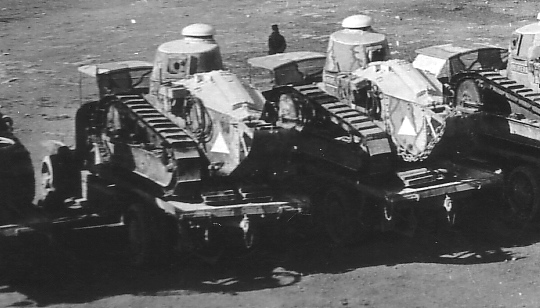
(For a more detailed image, click here.)
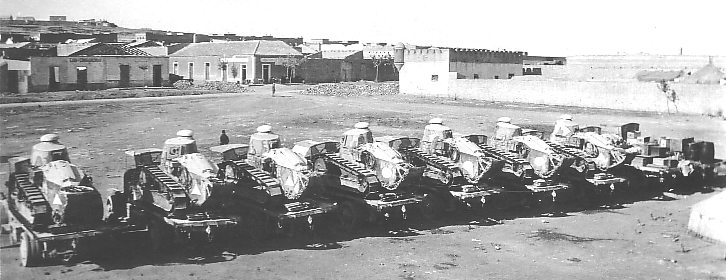
(For a more detailed image, click here.)
On the back of the picture, it says: “As you can see, it’s impossible not to love these tanks (mounted on their transport trucks), because they are so beautiful. In the background you can see the town of Dar-Drius, a much larger camp than Riffien, and more comfortable.”
The TSH version of the Renault FT-17 tank
In addition to the 10 standard machine gun-armed Renault FT-17 tanks, in 1922 Spain also bought from France one single tank of the TSH (“telegrafía sin hilos“) version. (The French designation for this version was TSF, “télégraphie sans fil“.) The TSF was an unarmed command FT-17 equipped with wireless communications equipment in place of the machine gun.
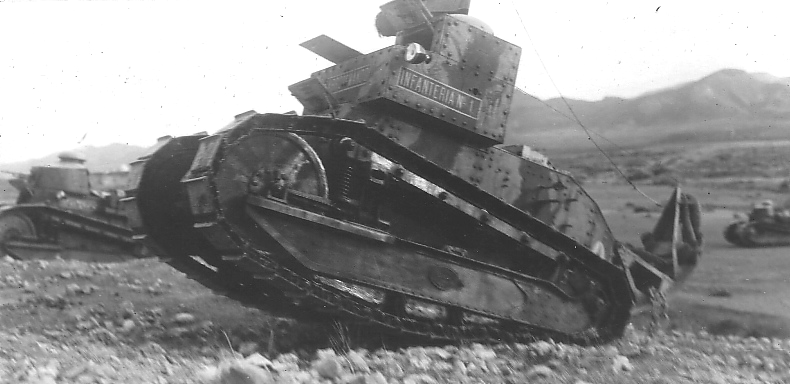
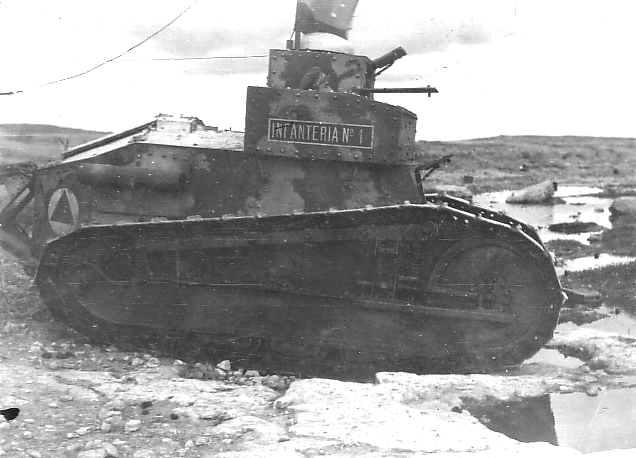
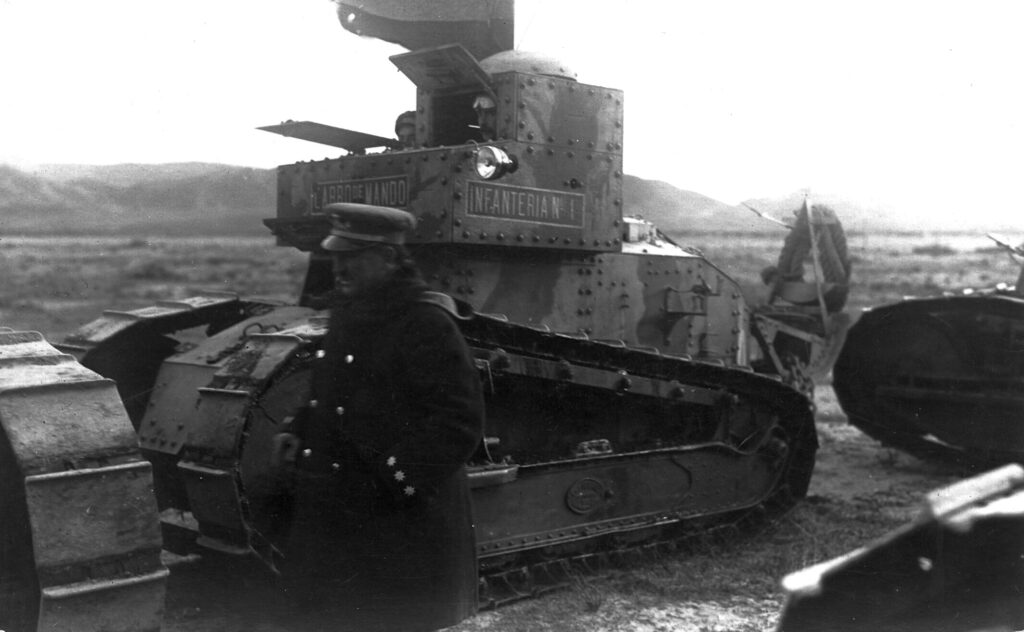
FT-17 TSH tank.
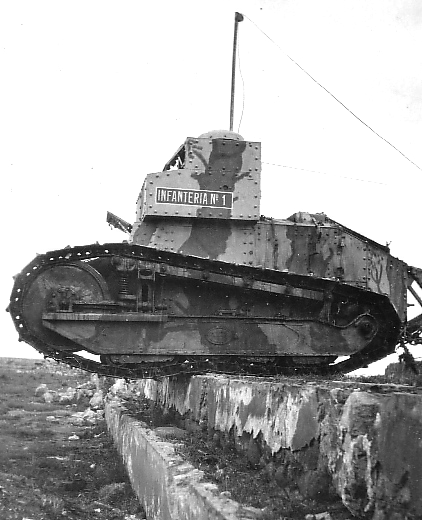
(For a more detailed image, click here.)
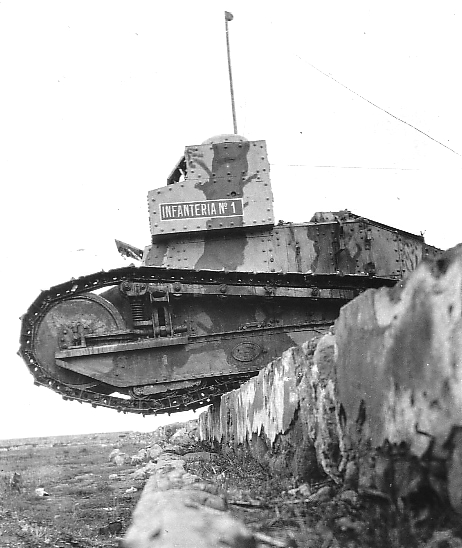
FT-17 TSH tank. On the back of the picture above, it says: “The telegraph and wireless telephone tank that I already sent to you before, but the position is not the same. Here it’s further along over the edge of the breastwork from which it’s going to drop. This was published in ‘Nuevo Mundo’.”
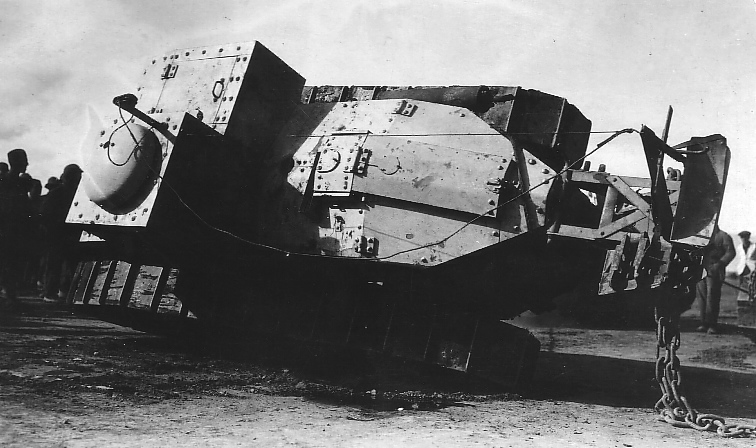
(For a more detailed image, click here.)
FT-17 TSH tank.
